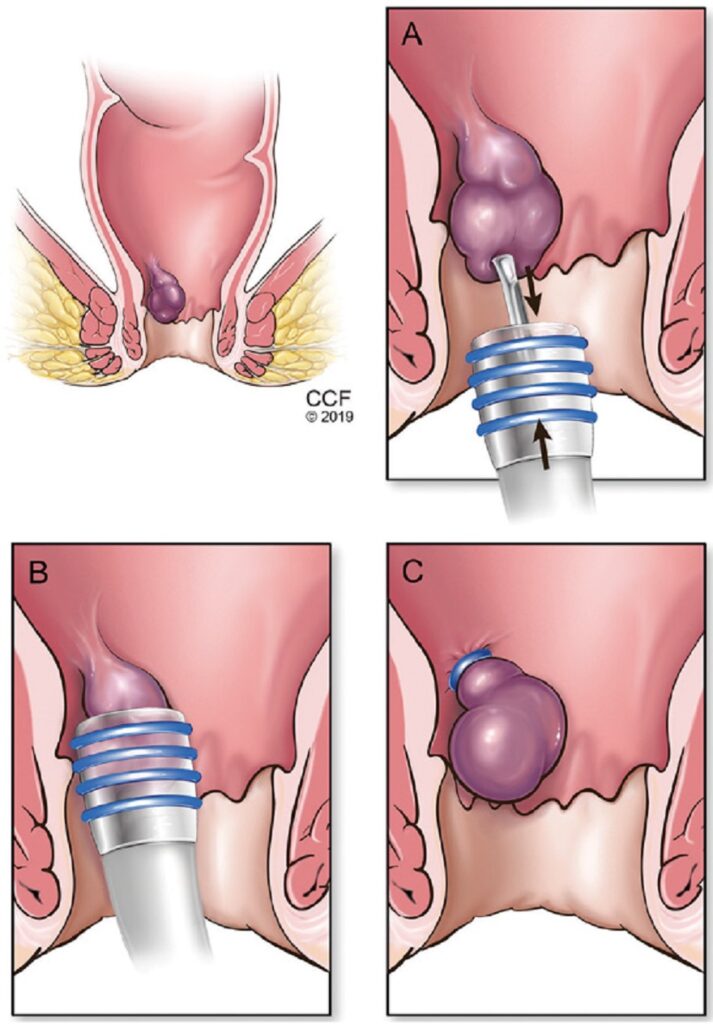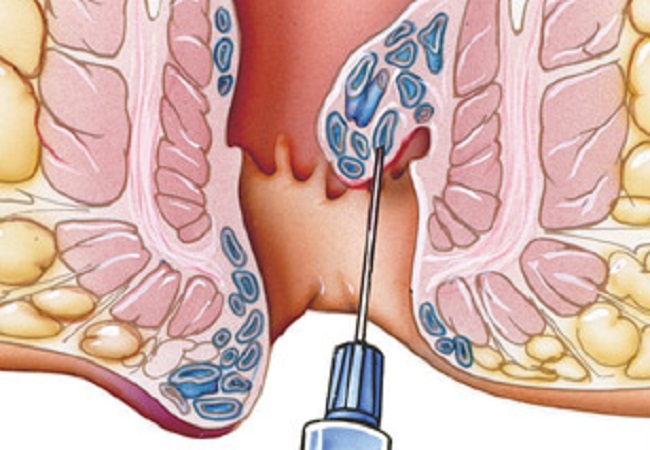As an Amazon Associate I earn from qualifying purchases.
Introduction
If you suffer from hemorrhoids, you know how uncomfortable and painful they can be. Fortunately, there are things you can do to treat them. In this ultimate guide, we’ll go over everything you need to know about treating hemorrhoids.
What are hemorrhoids?
Hemorrhoids are swollen veins in the lower rectum and anus that can cause pain and discomfort. They can be internal or external, and can be caused by factors like constipation, pregnancy, and obesity.
Symptoms of hemorrhoids
Some common symptoms of hemorrhoids include itching, discomfort, pain, and bleeding during bowel movements. You may also experience swelling, lumps around the anus, and a feeling of fullness in the rectum.
Why treat hemorrhoids?
Treating hemorrhoids is important to alleviate the pain and discomfort they cause. If left untreated, hemorrhoids can worsen and lead to more serious complications like blood clots and tissue death.
Now that you have a better understanding of what hemorrhoids are, their symptoms, and why it’s important to treat them, let’s dive into the different treatment options available.

Non-Invasive Treatments
Hemorrhoids can be extremely uncomfortable, but the good news is that there are several non-invasive treatments that can help relieve your symptoms. These treatments typically involve making changes to your diet and lifestyle, as well as using over-the-counter products to help soothe the affected area. Here are some of the most effective non-invasive treatments for hemorrhoids:
Fiber Supplements and Stool Softeners
One of the most important things you can do to help relieve hemorrhoid symptoms is to add more fiber to your diet. Fiber supplements and stool softeners can help make bowel movements easier and less painful, which can reduce irritation and swelling in the affected area.
Sitz Baths
Sitz baths are another effective treatment for hemorrhoids. This involves sitting in a shallow, warm bath several times a day to help relieve discomfort and reduce swelling. Adding Epsom salts to the bath can also provide additional relief.
Topical Creams and Ointments
There are several over-the-counter creams and ointments that can help reduce itching and irritation caused by hemorrhoids. Look for products containing hydrocortisone or witch hazel for maximum relief.
Witch Hazel
Witch hazel is a natural astringent that can help reduce swelling and discomfort caused by hemorrhoids. Apply witch hazel to the affected area several times a day for best results.
Ice Packs
Applying an ice pack to the affected area for a few minutes at a time can provide relief from pain and discomfort associated with hemorrhoids.
It’s important to note that if your hemorrhoids do not improve with these non-invasive treatments, you should speak with your healthcare provider to discuss other treatment options.

If conservative treatments such as lifestyle changes, over-the-counter medications, and non-invasive procedures don’t alleviate your hemorrhoids, you may benefit from invasive treatments. Invasive treatments include surgical procedures that require anesthesia and should only be considered after exhausting other options. Here are some common invasive treatments for hemorrhoids:
Rubber Band Ligation
Rubber band ligation is a procedure where a tight elastic band is placed around the hemorrhoid to cut off its blood supply. This causes the hemorrhoid to shrink and fall off within a few days. It’s a quick outpatient procedure that’s effective in treating grade 1 and 2 hemorrhoids.
Injection (Sclerotherapy)
Sclerotherapy is a procedure where a chemical solution is injected into the hemorrhoid to shrink and harden the tissue. This causes the hemorrhoid to scar and fall off. It’s effective in treating grade 1 and 2 hemorrhoids.
Infrared Coagulation (IRC)
IRC is a procedure that uses infrared light to coagulate or clot the blood inside the hemorrhoid. This causes the hemorrhoid to shrink and eventually fall off. It’s effective in treating grade 1 and 2 hemorrhoids.
Hemorrhoidectomy
Hemorrhoidectomy is a surgical procedure where the hemorrhoid is removed completely. It’s the most invasive option and is typically reserved for severe cases of hemorrhoids that don’t respond to other treatments. Recovery from this procedure can take several weeks.
while invasive treatments for hemorrhoids should only be considered as a last resort, they are effective in treating severe cases. Consult your doctor to determine if invasive treatments are a viable option for you.
Lifestyle Changes
Hemorrhoids can be uncomfortable and painful. But by making some simple lifestyle changes, you can ease your symptoms and reduce the likelihood of developing hemorrhoids in the future.
Diet Changes
Eating a healthy, high-fiber diet can help to soften your stool and reduce the strain on your anus during bowel movements. Try to include plenty of fruits, vegetables, and whole grains in your meals. Avoid processed foods, caffeine, and alcohol, as these can all contribute to constipation and worsen hemorrhoid symptoms.
Hydration
Drinking enough water is essential to prevent constipation and soften stool. Aim to drink at least 8 glasses of water a day, and avoid beverages that can dehydrate you, such as coffee and soda.
Exercise
Staying active can help to keep your bowel movements regular and reduce the pressure on your anus. Aim for at least 30 minutes of moderate exercise each day, such as walking or swimming.
Avoiding Straining During Bowel Movements
Try not to strain or push during bowel movements, as this can exacerbate hemorrhoid symptoms. Instead, take your time on the toilet and relax your muscles.
By making these simple lifestyle changes, you can ease the discomfort of hemorrhoids and reduce your risk of developing them in the future.
Post-treatment care
Congratulations, you have successfully treated your hemorrhoids! But your journey is not over yet as post-treatment care is crucial to prevent any recurrence of the condition.
Pain management
During the recovery process, it is common to experience pain and discomfort. Over-the-counter pain relievers such as ibuprofen or acetaminophen can help alleviate any discomfort. Additionally, cold compresses or sitz baths can provide relief to the affected area.
Hygiene
Good hygiene practices are essential to prevent any infection during the healing process. It is recommended to clean the anal area with mild soap and warm water after each bowel movement. Avoid using rough toilet paper and opt for soft wipes instead. Also, do not rub the area vigorously as it can cause irritation and pain.
Maintaining healthy bowel habits
It is important to maintain healthy bowel habits to prevent any strain on the anus. Drink plenty of water and eat a diet rich in fiber to ensure smooth bowel movements. Avoid sitting on the toilet for an extended period as it can cause pressure on the rectal veins.
Incorporating these post-treatment care practices into your routine can significantly reduce the chances of hemorrhoid recurrence. Remember to consult with your healthcare provider if you experience any prolonged pain or bleeding.

Prevention
Caring for your body and taking preventive measures can be the best way to avoid the uncomfortable and painful symptoms associated with hemorrhoids. There are several actions you can take to help reduce your risk of developing hemorrhoids, or to prevent them from getting worse if you already have them.
Maintaining a healthy diet and exercise regimen
Good nutrition and regular exercise are important components of a healthy lifestyle in general, but they can also help prevent hemorrhoids. Eating foods rich in fiber can help prevent constipation, which is a common cause of hemorrhoids. Drinking plenty of water and getting regular exercise can also help improve digestion and prevent constipation.
Avoiding prolonged sitting
Sitting for prolonged periods can put pressure on your rectal area and increase your risk of hemorrhoids. If you have a desk job, try to take frequent breaks and walk around every hour or so.
Avoiding constipation
Constipation is one of the main risk factors for hemorrhoids because it puts excessive pressure on the veins in the rectal area. Drinking plenty of water, eating a diet rich in fiber, and getting enough exercise can all help prevent constipation.
Not straining during bowel movements
Straining during a bowel movement places unnecessary pressure on the veins in your rectal area and can cause hemorrhoids. To prevent this, take your time and wait for a natural urge to have a bowel movement.
By taking preventative measures and being mindful of your body’s needs, you can help reduce the risk of developing hemorrhoids or prevent them from getting worse.
When to See a Doctor
Every person experiences hemorrhoids differently. Some may have mild symptoms that can be relieved with home remedies, while others may suffer from severe pain and discomfort that affects their daily activities. In general, hemorrhoids can be effectively treated with lifestyle changes and over-the-counter medications. However, certain circumstances require immediate medical attention. Here are some instances when you should see a doctor:
Chronic or Severe Hemorrhoids
If your hemorrhoids are not responding to self-care measures or over-the-counter medications, they may be chronic or severe. Chronic hemorrhoids are those that persist for more than a few weeks, while severe hemorrhoids cause intense pain and swelling. Your doctor may recommend prescription medications, non-surgical procedures, or surgery to alleviate your symptoms.
Changes in Bowel Movements or Rectal Bleeding
If you experience sudden changes in your bowel movements, such as diarrhea or constipation, or notice rectal bleeding, you should consult a doctor immediately. These symptoms may indicate an underlying condition such as inflammatory bowel disease, colorectal cancer, or infection.
Discomfort or Pain Lasting More than a Week
If you experience discomfort or pain in your anal region that lasts more than a week, despite following self-care measures, you should seek medical advice. Your doctor may need to examine your hemorrhoids to determine the cause of your symptoms and recommend appropriate treatment.
Remember that hemorrhoids are a common condition that affects millions of people worldwide. While most cases can be treated at home, it’s important to seek medical attention if your symptoms persist or worsen. By working with your doctor, you can find the most effective treatment to alleviate your symptoms and improve your quality of life.

Conclusion
Congratulations! You’ve made it to the end of The Ultimate Guide on How to Treat Hemorrhoids. We hope that this guide has been helpful in providing you with a comprehensive understanding of hemorrhoids and the different methods of treatment that are available.
Hemorrhoids are treatable
The first thing that you should take away from this guide is that hemorrhoids are treatable. While they may be uncomfortable and even painful at times, there are a variety of treatment options available that can help alleviate your symptoms and promote healing.
Non-invasive treatments should be tried first
When it comes to treating hemorrhoids, it’s always best to try non-invasive treatments first. These include things like over-the-counter creams and ointments, warm baths, and ice packs. These treatments can provide relief for mild to moderate hemorrhoid symptoms without the need for surgery.
Lifestyle changes can aid in prevention and treatment
In addition to these non-invasive treatments, lifestyle changes can also help prevent and treat hemorrhoids. This includes things like drinking more water, eating a high fiber diet, and avoiding sitting for long periods of time.
Overall, by using a combination of non-invasive treatments and lifestyle changes, you can effectively treat hemorrhoids and prevent them from reoccurring in the future. Remember, if your symptoms persist or become more severe, it’s always important to consult your healthcare provider.
Amazon and the Amazon logo are trademarks of Amazon.com, Inc, or its affiliates.
